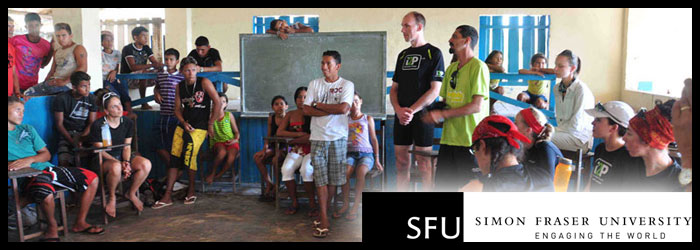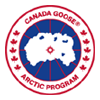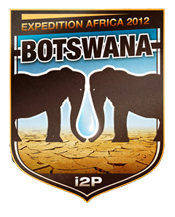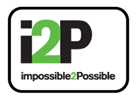

Water and its Effect on Human Development and Biodiversity
Simon Fraser University (SFU) and i2P have partnered to create a captivating curriculum centered on the topic of Water and its Effect on Human Development and Biodiversity. The curriculum will include an introduction to the awareness of the essential need for water and food by all living organisms, the costs associated with delivering drinking water to communities around the world, and how quality of life is affected directly and indirectly by access or lack there of, to clean drinking water.
Focusing on Water and the Kalahari Desert, we will use the method of inquiry. We believe this method is well suited to stimulating imaginations that translate to in-depth investigation and development of critical thinking. Participants may invest in a few of our suggested modules, as many as possible, or use modules of their own. What matters is that participants develop their own ideas into questions within a module, how they plan to investigate that question with their own experiments, and how they prepare their final outcomes. Suggested outcome preparations can be in the form of written reports, video reports, or other mechanisms that enable sharing with the other participants. The i2P Youth Ambassadors will be the lead researchers in the Kalahari Desert, and will be direct conduits of information back to thousands of participants following intently from around the world. There will be an opportunity to have questions from participants investigated by the Youth Ambassadors while they are in the Kalahari. You can ask questions or even pose daily academic challenges to the Youth Ambassadors, which they would be challenged to find answers and share them using daily videos and live videoconferencing into classrooms.
Teachers have the flexibility to adjust the nature and depth to which the modules are implemented by each individual student or classroom. This enables participation from a wide range of backgrounds, academic abilities, and time available (i.e. a week, an entire term or year). Several suggested modules are described below, which can be used in group discussion & debate and augmented by in-depth investigation individually or in small groups. Don't forget to celebrate the participants' knowledge, skills, awareness and perspective!
The curriculum is based on three phases:
- Phase 1 - Engagement and Stimulation of Imagination
- Module: Make Your Connection Into The Kalahari
- Phase 2 - Learning to Use the Scientific Method and its Adaptations
- Module: Determine How Much Water Your Body Needs
- Module: Build The Ideal Water Filter For An Expedition
- Module: Is Water Critical To A Plant's Life Cycle?
- Phase 3 - Perspective and Awareness
- Module: What Is The Cost & Benefit Of Having Drinkable Water In Your Community?
- Module: What Are Your Top 10 Necessities In Life?
- Module: Successes & Failures In Planned Human Interventions In Ecosystems
- Module: Create A Sustainable Project
- Module: What Are People In Botswana Saying About Water?
Your Submissions
You will be able to post your outcomes in Your Submissions! You may invest in a few of our suggested modules, as many as possible, or use modules of your own. What matters most is that you develop your own ideas into questions within the module, develop a plan to investigate that question with your own experiments, and prepare final outcomes. Suggested formats for your final outcomes can be in video & photo (with descriptions) or a text document (PDF or Word) - be creative! Make sure you send in your questions to Q&A, view the daily videos, photos and journal reports from the Youth Ambassadors, and take part in the live videoconferencing!
You can email Your Submissions to Jordan Thoms, Tweet us @GOi2P or post them on our Facebook Page!
Phase 1 - Engagement and Stimulation of Imagination
We encourage all participants to identify a question relevant to the overall academic theme of this expedition's course topic, water and its effect on biodiversity and human development. We suggest that participants ask a question about an animal, plant, or the geography, climate, geology of the Kalahari Desert. In this phase of the course, students could provide themselves with an analogous organism or phenomenon located in their community as a comparison or reference.
Module: Make Your Connection Into The Kalahari
Student Task: Identify a wild or domesticated animal or plant (i.e. cattle) that is found in the Kalahari Desert. Through discussion with your teacher, make a plan to research the animal or plant and present your findings in a one-page research report. More advanced students may develop a plan to thoroughly investigate the animal/plant's behavior/physiology as it relates to water in the context of an independent studies course.
Phase 2 - Learning to Use the Scientific Method and its Adaptations
There is considerable literature on the scientific method, yet it is the application and adaptation of the scientific method in order to answer a specific question that remains a source of an individual's creativity and individuality in conducting a study. In this phase, participants are encouraged to design and conduct a study/experiment that allows observation of the importance of water on the well-being of an organism. We suggest three possible studies/experiments. Participants could measure the quantity of water they each consume per day over the span of a period at least as long as a week. Participants could design and test an apparatus to improve the clarity of water by removing organisms and small particles (Safety Note: no experimentation should be allowed to start without having your apparatus' design and procedure for testing water approved by your instructor). An experiment could be to learn of the importance of water on the growth rate and life-duration of a plant.
Module: Determine How Much Water Your Body Needs
Student Task: Design and conduct a multi-day experiment to learn how many liters of water your body requires per day, then write a research report (students at younger levels can discuss their results as a class). More advanced students could include a detailed diary of all your body's intake, both liquid and solid, during the period of experimentation and research on how their body uses the varied food groups. More advanced students may also consider proposing a quantitative way to extend their understanding of water requirements per organism per day, to the daily water requirements of an ecosystem. This can be done first individually, and then discussed/debated in a group setting. Students would need to (a) estimate the water requirement levels for the ecosystem (what are the knowns and unknowns/assumptions in such an extrapolation?) and (b) compare their estimate to, for example, a historical record of precipitation in that region or ecosystem.
Higher-level students could investigate biochemical pathways and enzymatic reactions. While performing their experiments, students may also compare their daily requirements with the animal/plant they researched in Module 1.
QUESTION: How does the amount of water required change when you introduce physical activity?
i2P Partnership: Be creative! Send us your submissions in written, video or photo format! You can email them to Jordan Thoms, Tweet us @GOi2P or post them on our Facebook Page! Consult with your education assistants, provided by Simon Fraser University, over email to get tips on your experimental design.
Module: Build The Ideal Water Filter For An Expedition
Student Task: Using common household materials, design, build, test, and assess an apparatus for filtering water in the Kalahari. Present your filtration system to the teacher or class in the form of a 2-5 minute presentation and demonstration (this module could be done in groups).
QUESTIONS: What common filter materials and technologies are used in survival situations? How do you keep it as light as possible? What considerations have been made to make it easy to transport?
i2P Partnership: Your apparatus may be selected for trial by the Youth Ambassadors in the Kalahari. Students wishing to have their filtration systems tested should submit a 30s video explaining how their system works and why it should be used. A maximum 2 submissions from each school will be accepted.
Be creative! Send us your submissions in written, video or photo format! You can email them to Jordan Thoms, Tweet us @GOi2P or post them on our Facebook Page!
Module: Is Water Critical To A Plant's Life Cycle?
Student Task: Conduct an experiment to learn how critical water is in the life cycle of a plant. We'd recommend you mimic the experiment developed by Dr Paul H. Williams, Professor of Plant Pathology at the University of Wisconsin-Madison.
An explanation of his experiment can be found here:
http://hilo.hawaii.edu/affiliates/prism/documents/Lesson2.1LifeCycleofBrassicaPlants.pdf
More advanced students might consider changing the specific times of the day they give the plants water. They may also vary the plants distance to a light source. Lastly, more advanced students may consider entering their experiment in a science fair.
Phase 3 - Perspective and Awareness
Several projects are suggested that may allow participants to begin to share their knowledge and awareness on broad issues pertaining to water availability and usage issues. In addition, in any examination of issues having broad scope and impact, new questions, perspectives, and gaps in knowledge can be identified through discussion and debate. It is our goal that participants identify gaps in knowledge and devise questions and methods by which they can investigate those questions in-depth.
Module: What Is The Cost & Benefit Of Having Drinkable Water In Your Community?
Student Task: Qualitatively and quantitatively learn about the cost to your community to supply drinkable water to all households. Rationalize and discuss the cost of providing this service by examining the infrastructure necessary. Complete an oral and/or written report. Younger students can complete reports on the many uses of water in their homes and communities. More advanced students might benefit from a field trip to their towns water treatment plant and/or water source.
QUESTIONS: How is quality of life in a community affected in direct and indirect ways because of the availability of drinkable water in that community? What are the benefits in your community on having potable-water access in all households?
i2P Partnership: Be creative! Send us your submissions in written, video or photo format! You can email them to Jordan Thoms, Tweet us @GOi2P or post them on our Facebook Page!
Module: What Are Your Top 10 Necessities In Life?
Student Task: Propose and rank in order of importance the top 10 necessities for your life, then share and discuss your lists with your peers and open up the topic to a class debate. More advanced students can create a 2 minute video report - framed like a TV news report - on how their class decided on its top 10 necessities. More advanced students can make a list on necessities for biodiversity in an entire ecosystem.
QUESTIONS: Were there one or more items on your list that you deemed essential but others did not? Can you create an experiment or checklist on what would validate an item on the list as being essential to life? Where does clean water rank on your list?
i2P Partnership: Be creative! Send us your submissions in written, video or photo format! You can email them to Jordan Thoms, Tweet us @GOi2P or post them on our Facebook Page!
Module: Successes & Failures In Planned Human Interventions In Ecosystems
This module is proposed for students who have demonstrated advanced performance in earlier modules.
Student Task: Consider the following statement - "all ecosystems require human intervention in order to obtain growth in biodiversity in the region" - and then discuss in a group environment. Develop a plan to become informed about the history of ecosystem intervention and sustainability issues, and then formulate an opinion and substantiate that opinion in an objective written report by conducting research to obtain facts.
Module: Create A Sustainable Project
Student Task: Devise a viable strategy to introduce a sustainable (or recycling) practice in your community that you believe can make a long-term difference, and develop as fully as possible an implementation plan, including expected difficulties, anticipated benefits, and a schedule. Consider things like recycling projects, moderation of consumption rates, alteration of existing industrial/agricultural practice and hunting.
QUESTIONS: What sustainable projects already exist in your community? How well are they working? Are there limits to the types of resources that can or cannot (i.e. perhaps should not) be managed for sustainable activity?
i2P Partnership: Be creative! Send us your submissions in written, video or photo format! You can email them to Jordan Thoms, Tweet us @GOi2P or post them on our Facebook Page!
Module: What Are People In Botswana Saying About Water?
Student Task: Analyze a newspaper, UN report, or equivalent article relevant to Botswana (or its greater geographical region). Research the topics discussed in the article and determine what links there are to water and food security issues.
QUESTIONS: Are there any areas which water isn't having a direct impact? In what context do water issues in Botswana come up most often? Are people more concerned about water for livestock, people or mining?









